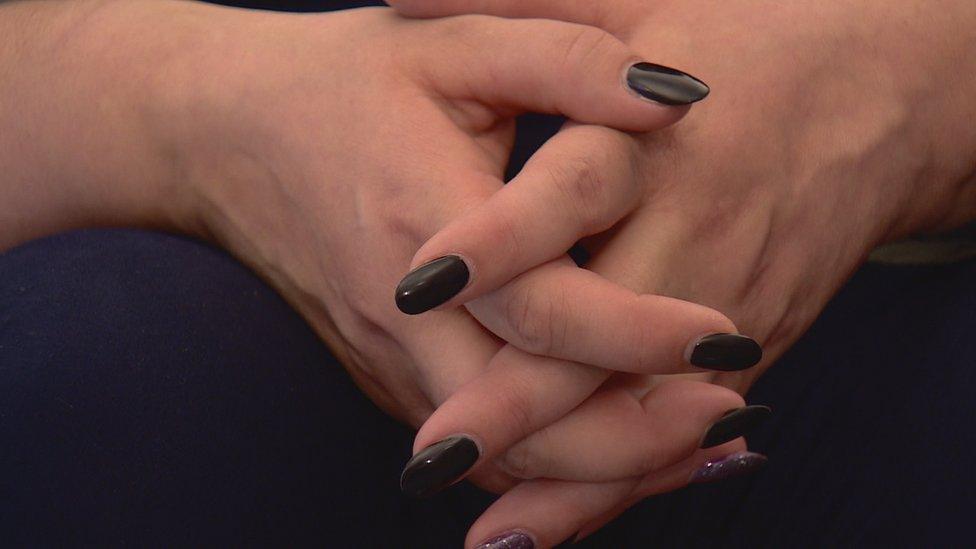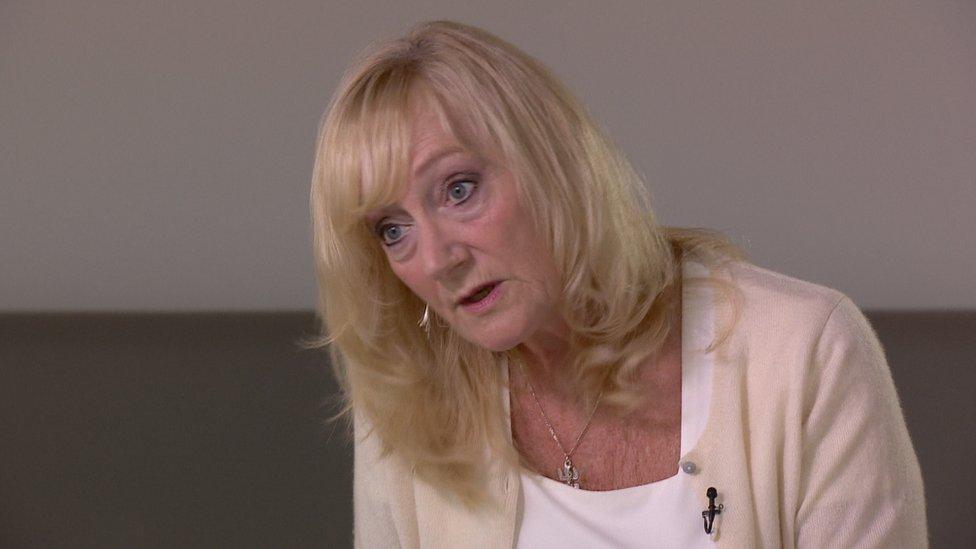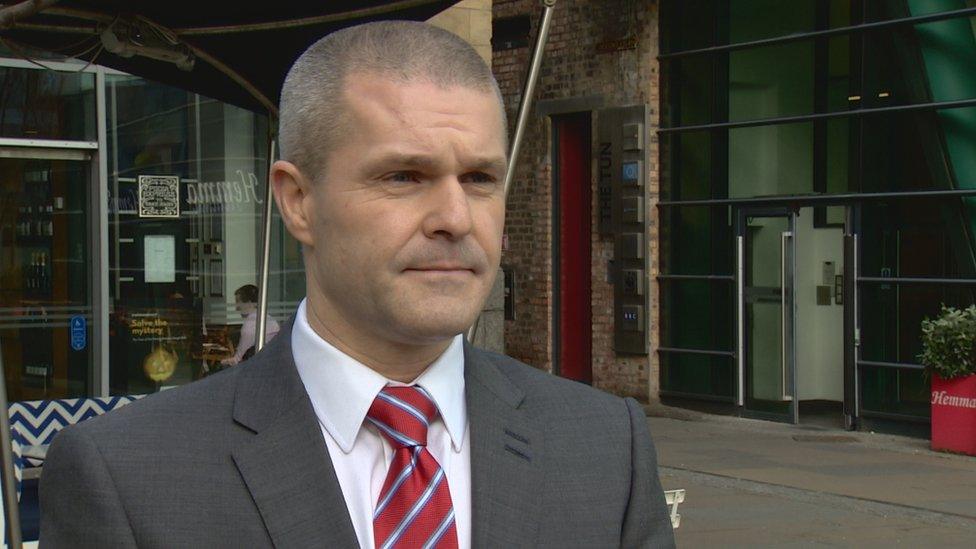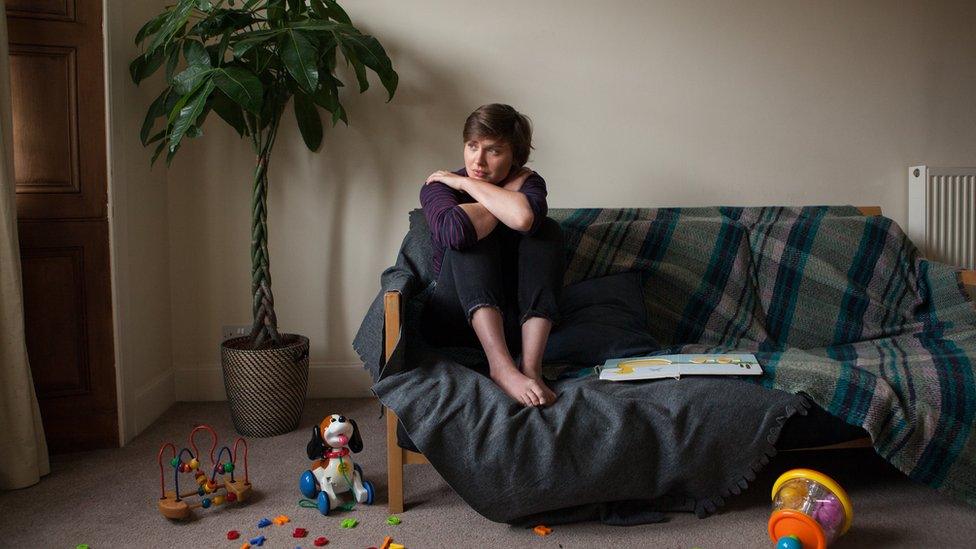Police change 'zero tolerance' domestic abuse approach
- Published
"A lot of the abuse he got away with"
Police Scotland has changed its approach to domestic abuse which previously meant almost all alleged perpetrators were kept in custody.
Before the shift, the zero-tolerance policy meant accused were held until they could appear at a court hearing.
The policy change means about one in five accused, those who are judged to be less of a risk to the victim, are now released on special conditions.
Police said the written undertakings were "very stringent".
These could include conditions such as being forced to leave the family home or not approaching the alleged victim.
They would also state that an accused has to appear in court within the next 14 working days.
Police Scotland said the new approach was not a "light" option and where there was any doubt about safety the accused would still be held in custody until the next court date.
The zero tolerance approach was pioneered by Stephen House, the first chief constable of Police Scotland, when he was previously the head of the country's biggest force, Strathclyde.
He said that where there was evidence of domestic abuse the perpetrator should be arrested and taken into custody. They would then appear at court "on the next lawful day".
At court, the accused could be remanded in custody or released on bail conditions which would restrict their activities.
The change to the custody policy was introduced in March after the Crown Office and Police Scotland signed a new joint protocol.
They launched it at an event with the focus on the impact of domestic abuse on victims and children.
Neither of them publicised the change to the previous zero tolerance approach.

Police had said that domestic abuse courts were getting clogged
Figures obtained by BBC Scotland show that between the end of March and end of August Police Scotland released almost 1,400 people on written undertaking rather than being detained in custody "pending appearance at court on the next lawful day".
Previously, in 2013, police said they were considering the change because of the sheer volume of domestic abuse cases and the fact they were clogging up the courts.
At that time, the Crown Office said "the use of undertakings in domestic abuse cases would only ever be introduced after a full evaluation and risk assessment had been carried out with the police and support agencies".
Focused police drives to tackle domestic abuse and increase confidence among victims have seen recorded incidents rise dramatically from 35,877 in 2002 to almost 60,000 last year.
In 79% of cases there was a female victim and a male accused. Women were accused by men in 18% of incidents.
Mairead Tagg, a specialist in gender-based violence, said the national strategy on domestic abuse could be said to be a "victim of its own success".
She said domestic abuse was now a "very high priority" for police.

Mairead Tagg said domestic abuse had become a high priority for police
"More and more people are phoning and expecting help," she said.
"Unfortunately it is not always easy to ensure that the resulting criminal process is going to be as fast or as easily expedited as the police response."
The clinical psychologist said there needed to be a "safety assessment" to ensure that the victim was not put at further risk and they needed to be informed of what was happening.
She said: "Communication is absolutely essential. Without that the first a woman might know is if a perpetrator turns up at their door."
"It can be very disconcerting and frightening for people affected by violence in the home to discover that the perpetrator has been set free because it feels like they have not been believed or nobody is thinking about their safety."

Det Supt Gordon McCreadie said police were looking for a proportionate response
Det Supt Gordon McCreadie, of Police Scotland, said: "Officers must take into account the safety of the victim and the likelihood of reoffending before a person can be released on an undertaking."
He said domestic abuse was "very complex".
"It may range from absolutely horrific crimes such as rape and sexual assault to a couple with a fractious relationship," he said.
"While no domestic abuse is acceptable, we have to have a proportionate approach. We have to have an appropriate response and that is why the joint protocol was agreed."
- Published24 October 2017
